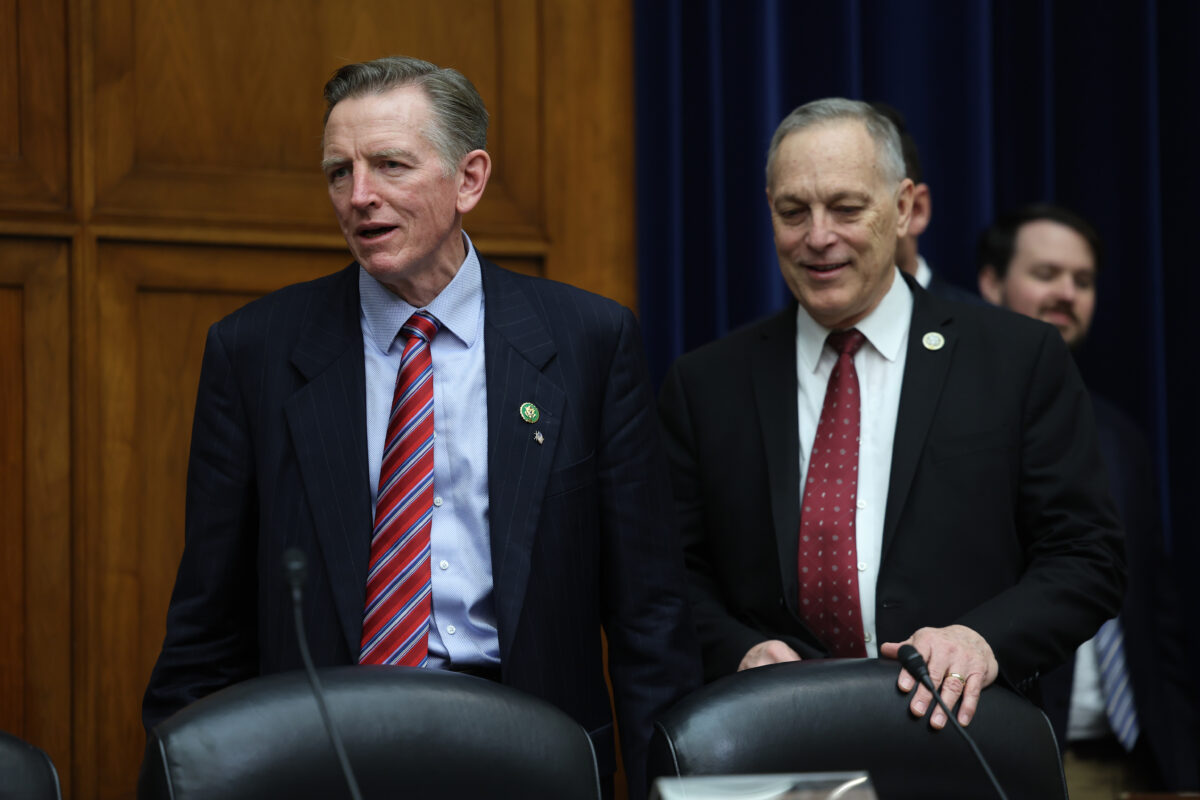President Joe Biden on April 10 signed a measure that immediately ended the COVID-19 national emergency more than three years after it was enacted, the White House announced.
HJ Res 7 passed through the Senate on March 29 by a 68-23 margin, with 21 Democrats joining 47 Republicans to support the measure.
Four Republicans and five Democrats did not cast a vote—and 23 Democrats voted against the short resolution—which was introduced by Rep. Paul Gosar (R-Ariz.) last month and passed by the House 229-197 on Feb. 1.
Eleven Democrats voted against the House measure.

The legislation included a simple one-line description declaring that the pandemic national emergency “is hereby terminated.” The resolution signed on April 10 does not impact the public health emergency, which is still scheduled to terminate on May 11.
Before the Senate vote on the resolution. Sen. Roger Marshall (R-Kansas) encouraged his fellow legislators to “end this chapter and let Americans get back to their own lives.”
“I ask my colleagues to join me again in a strong bipartisan fashion in sending this resolution to the president’s desk to end the national emergency declaration for COVID-19 once and for all today,” Marshall said.
President Donald Trump enacted the COVID national emergency on March 13, 2020, after establishing the COVID public health emergency on Jan. 31, 2020.
Originally, the White House planned to end both emergencies on May 11.
In a 60 Minutes interview last September Biden said, “the pandemic is over.”
“We still have a problem with COVID. We’re still doing a lot of work on it. But the pandemic is over,” Biden said.
“If you notice, no one’s wearing masks. Everybody seems to be in pretty good shape. And so I think it’s changing.”
The Biden administration wrote a letter to Congress on Jan. 30 highlighting the reasoning behind the decision to end the COVID national emergency and public health emergency on May 11.
“At present, the administration’s plan is to extend the emergency declarations to May 11, and then end both emergencies on that date.
“This wind down would align with the administration’s previous commitments to give at least 60 days’ notice prior to termination of the PHE,” the letter read.
“To be clear, [the] continuation of these emergency declarations until May 11 does not impose any restriction at all on individual conduct with regard to COVID-19,” the letter continued.
“They do not impose mask mandates or vaccine mandates. They do not restrict school or business operations. They do not require the use of any medicines or tests in response to cases of COVID-19.”
At the time, the White House said in a statement that “an abrupt end to the emergency declarations would create wide-ranging chaos and uncertainty throughout the health care system—for states, for hospitals and doctors’ offices, and most importantly, for tens of millions of Americans.”
The U.S. Department of Health and Human Services issued blanket waivers under the national emergency for requirements related to Medicare provider enrollment, in-person meetings between providers and patients, and out-of-state Medicare and Medicaid provider guidelines that mandated they be licensed in the state where they are providing services.
States and territories were also given the flexibility to administer services in unlicensed facilities, and temporarily enrolled providers were permitted to avoid paying application fees and completing criminal background checks.
The waivers were announced around the start of the pandemic when lockdowns were ordered and several rules were loosened to minimize the number of people leaving their homes to seek medical services.
Multiple waivers for Medicare, Medicaid, and CHIP will end as a result of the resolution. Many of the changes had become irrelevant over the past year as pandemic measures were relaxed.
Biden initially encouraged lawmakers to let the emergencies expire on May 11 and said that “an orderly transition is critical to the health and safety of the nation.”

On March 29, a White House spokesperson confirmed that Biden would not veto HJ Res. 7.
During a March 30 press briefing, White House press secretary Karine Jean-Pierre explained why the president reversed course on his Jan. 30 letter.
“If the president was planning to veto this legislation, the SAP [Statement of Administrative Policy] would have said so,” Jean-Pierre said.
“And certainly members of Congress know that. They understand how that works, and how that process works as well.
“We are in a different place and time than we were in January. That is something that you all know and have reported,” Jean-Pierre added.
“We’ve been winding down authorities over the last two months, and the national emergency lifting just a few weeks before the public health one will not impact our efforts to do so in an orderly way.”
The Epoch Times





